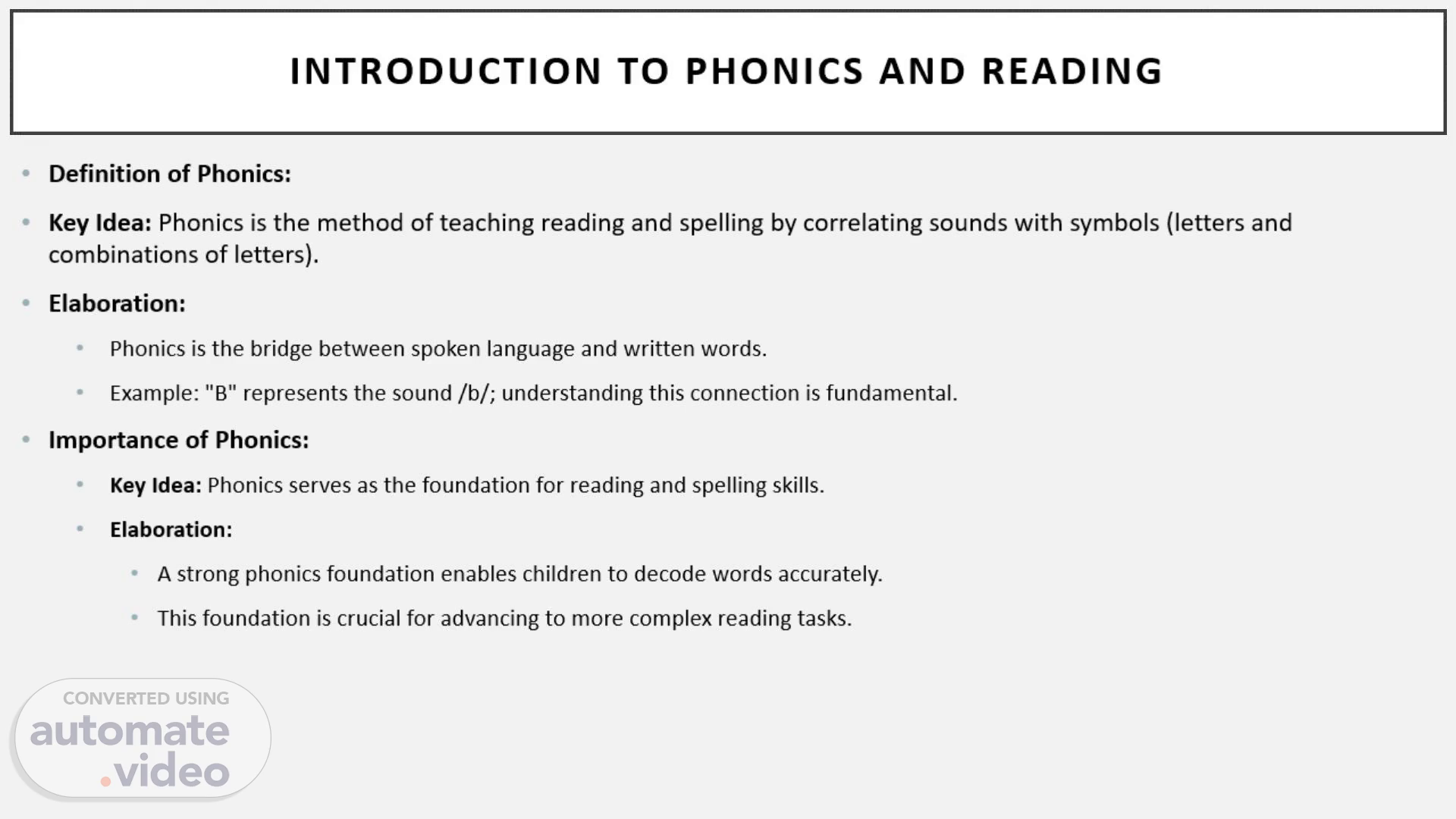
Page 1 (0s)
[Audio] Welcome to our presentation on Understanding Phonics for Successful Reading. Phonics is the key to unlocking the world of reading for children. It involves the relationship between sounds and the letters that represent them. This understanding is fundamental for decoding and pronouncing words accurately, laying the groundwork for a strong reading foundation..
Page 2 (1m 6s)
[Audio] Let's delve into the building blocks of phonics. Phonemic awareness, the ability to recognize and manipulate individual sounds in words, is crucial. Activities like sound isolation and blending develop this skill. Letter-sound correspondence involves understanding the connection between letters and their sounds. Systematic instruction helps associate each letter with its sound. Blending and segmenting, where we combine and break apart sounds to form words, are fundamental skills for reading success..
Page 3 (1m 43s)
[Audio] Now, let's explore effective phonics strategies. Synthetic phonics teaches sounds and blends them to form words. It's about breaking down words into individual sounds and then combining them. Analytic phonics, on the other hand, involves analyzing whole words and identifying common patterns. Activities like word families and rhyming help recognize patterns in word endings and sounds, adding an engaging dimension to phonics instruction..
Page 4 (2m 16s)
[Audio] Phonics isn't just theory—it's a practice that yields success. Improved reading proficiency is a common outcome of effective phonics instruction. Students who struggled initially often show remarkable progress. Similarly, enhanced spelling skills are a direct result of understanding sound-letter relationships. These success stories highlight the tangible benefits of incorporating phonics into early education..
Page 5 (2m 46s)
[Audio] As we wrap up, let's recap the key takeaways. Phonics is the bridge between spoken language and written words, forming the foundation for reading and spelling. Remember the essential components of phonics instruction: phonemic awareness, letter-sound correspondence, and blending/segmenting. Explore diverse strategies like synthetic and analytic phonics, word families, and rhyming for a comprehensive approach. Success stories affirm that phonics works, improving both reading proficiency and spelling skills. In conclusion, let's champion the importance of phonics for lifelong literacy. Encourage ongoing practice and support, and thank you for joining us on this journey into the world of phonics..